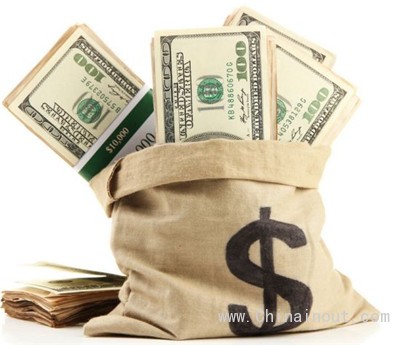Vioearth是苏格兰的一家小公司,但它有着远大的抱负,那就是让自己生产的“Viosmart”节能电力集线器进入美国各地的办公室。
但是,在考虑那笔启动美国业务所需的50万美元投资的时候,Vioearth首席执行官麦克尼尔-麦卡勒姆(McNeill-McCallum)遇到了一个新挑战:美元走强。他说:“这影响了我们所有的财务模型。”
从美联储(Fed)到“锈带”制造商和内陆地区的农场主,每一个业务受到国际市场影响的美国人,都在考虑美元过去6个月飙升带来的后果。
人们的注意力大多集中于美元走强对出口商和贸易或者要将海外利润汇回本土的美国企业有何影响。但美元走强对美国经济复苏的影响还体现在它对外国直接投资(FDI)的影响上,而美国政府近几年已经将吸引外国直接投资作为优先事项。
麦克尼尔-麦卡勒姆是抵达华盛顿出席近日举行的“选择美国投资峰会”(selec USA Summit)的1300名投资者的一员。在这次峰会上,从美国总统巴拉克•奥巴马(Barack Obama)和谷歌董事长埃里克•施密特(Eric Schmidt)到州政府官员的各类人士,都将争取他们的投资。
“选择美国投资峰会”创立于2011年,此前以通用电气(General Electric)董事长杰夫•伊梅尔特(Jeff Immelt)领衔的一个委员会发现,美国联邦政府在吸引外国直接投资方面行动不够积极。作为一个投资促进机构,“选择美国投资峰会”相对而言还是个新手,这主要是因为这项工作以往一直是国家和地方政府的活儿。
前银行业人士斯蒂芬•塞利格(Stefan Selig)表示:“在促进外商投资美国方面,我们做得还远远不到位。”塞利格现在担任美国商务部主管国际贸易事务的副部长,负责吸引外国直接投资事宜。尽管过去在吸引外国投资方面不太积极,但美国的外国直接投资存量仍达到近3万亿美元,居全球首位,并且这一数字还在不断增长之中。
官员们宣称,“选择美国投资峰会”对此做出了贡献。出席2013年首届峰会的投资者在美国28个州投资了价值总计超过70亿美元的项目。但2013年美国占全球直接投资的份额从2000年的逾三分之一降到了不到五分之一。上周发布的初步数据还显示,2014年,流入美国的外国直接投资下降60%,不过这主要是因为英国沃达丰(Vodafone)以1300亿美元卖掉了其持有的美国Verizon Wireless的股份。
“国际投资组织”(The Organisation for International Investment)的总裁兼首席执行官南希•麦克勒农(Nancy McLernon)表示:“现在世界各地的企业对美国相当看好。但不容忽视的是,美国正作茧自缚,可能浪费这个绝佳的条件。”“国际投资组织”代表的是在美外国投资者的利益。麦克勒农认为,其中一个障碍是,美国的企业所得税率眼下依然比经合组织(OECD)平均水平高出10个百分点。
麦克勒农表示,美国在过去20年里未能签署许多实质性的贸易协定,这也影响了美国提高竞争力的计划,不过鉴于奥巴马政府正在推动一些重要的环太平洋和跨大西洋贸易协定,这种状况正在改变。
在那些政策辩论当中,美元走强代表着新的难题。塞利格表示:“美元走强将会影响(美国经济的)各个方面,因为它与贸易和投资相关。”但他主张,投资者也应将美元走强视为美国实力强劲的信号。尽管美元走强提高了初始投资的成本,但它是美国经济健康的结果——美国经济的表现,可以说比中国等吸引了巨额外国直接投资的新兴经济体还要好。
他说:“汇率问题加大了对美投资难度……但你也获得了进入美国市场的入口。”
大型投资者还提出,他们正在做的是长期的战略性投资,而不是更容易受到汇率波动影响的短期投资。
Drax Group在英国经营着一座大型电厂,这家使用煤炭燃料的电厂正在改用可持续的木屑颗粒燃料。该公司近年来投资了2.5亿美元,用于在路易斯安那州和密西西比州建立木屑颗粒生产厂,以及建造用于将木屑颗粒燃料运出去的港口设施。高管们表示,现在该公司在美国寻址建立其他工厂的努力,没有受到美元汇率变化的影响。
Drax Power的监管和政策主管戴维•洛夫(David Love)表示:“这显然是我们必须处理的问题之一。但我们现在做的是长线投资。”
麦克尼尔-麦卡勒姆得出了相同的结论。按英镑来说,他不得不增加初始投资,但他认为,只要美元保持强势,这种押注未来就可以通过更高的股息获得回报。
他说:“我们最终还得做事。先走出去、行动起来,尽全力把事情做好,然后再担心(美元汇率)吧。”(中国进出口网)
Vioearth is a small Scottish company with big ambitions to bring its “Viosmart” energy efficient power hubs into offices around the US.
But as Duncan McNeill-McCallum, Vioearth’s chief executive, has been contemplating the $500,000 investment needed to launch his US business, he has come up against a new challenge: a strengthening dollar. “It is affecting all of our financial models,” he says.

from the Federal Reserve to rust belt manufacturers and heartland farmers, the dollar’s surge over the past six months has everyone in the US with an international angle to their business contemplating the consequences.
Much of the focus has been on the impact on exporters and trade or US corporates repatriating overseas profits. But there is another way the strong dollar is casting its shadow over US recovery: foreign direct investment, something the administration has made a priority of attracting in recent years.
Mr McNeill-McCallum is one of 1,300 investors landing in Washington for this week’s selec USA Summit, wher they will be courted by everyone from President Barack Obama and Eric Schmidt, chairman of Google, to state officials.
Launched in 2011, after a panel led by Jeff Immelt, head of General Electric, found the federal government’s existing efforts to lure FDI lacking, selec USA remains a relative newcomer to the world of investment promotion. That is mainly because the job has traditionally been left to state and local governments.
“We’ve not been nearly as good as we should have been at promoting the US as a destination for investment,” says Stefan Selig, a former banker who oversees the effort as US undersecretary of Commerce for International Trade. Despite halfhearted efforts in the past, the US is the country with the biggest stock of FDI, at almost $3tn and growing.
Officials claim selec USA helped add to that. Investors at its first summit in 2013 put their money into projects worth more than $7bn in 28 states. But its share of the global pie fell from more than a third in 2000 to less than a fifth in 2013. Preliminary numbers released last week also showed FDI into the US dipping by 60 per cent in 2014, though largely because of one transaction, Vodafone of the UK’s $130bn sale of its stake in Verizon Wireless of the US.
“Companies around the world are fairly bullish on the US right now. But the big ‘but’ is that self-inflected wounds could deter that,” says Nancy McLernon, president and CEO of the Organization for International Investment, which represents foreign investors in the US. Among those, she argues, is a corporate tax rate that remains 10 percentage points higher than the average among OECD nations.
A US failure to secure many substantive trade agreements in the past two decades has also hurt the country’s competitive proposition, she says, though that is changing with the Obama administration’s push for big Pacific Rim and transatlantic trade pacts.
Amid those sorts of policy debates, the strength in the dollar represents a new conundrum. “The strong dollar is going to impact everything [in the US economy] as it relates to trade and investment,” says Mr Selig. But he argues that investors also see it as a sign of strength. While the strong dollar raises the cost of initial investments, it is the result of a healthy US economy, which has arguably performed better than emerging economies like China, which have attracted huge.
“The currency issue makes it more difficult to invest . . . but you also get access to the market,” he says.
Big investors also argue they are making long-term, strategic investments rather than short-term ones that might be more affected by currency swings.
The Drax Group, which operates a massive power station in the UK that it is converting from coal fuel to sustainable wood pellets, has invested $250m in recent years into production facilities for those pellets in Louisiana and Mississippi and a port facility to ship them out. Its search for locations to establish other plants in the US is not being affected by the dollar at this point, executives say.
“It is one of the issues that we have to deal with obviously,” says David Love, head of regulation and policy at Drax Power. “But these are long-term investments that we are making.”
Mr McNeill-McCallum has come to the same conclusion. He has had to increase initial investments in UK currency terms but he thinks that bet will be repaid in the future via bigger dividends, as long as the dollar stays strong.
“At the end of the day we have a job to do,” he says. “Let’s go out and do the job and do the best we can and then worry about [the dollar] later.”











